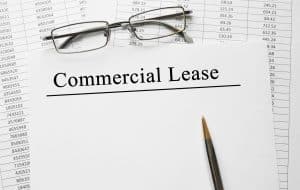Commercial Leases: An Old Basic and a Bit Beyond – Part 1
Sep 19, 2019 - Blog by Moorhead Law Group
Author: Moorhead Law Group
For Part 2, click here.
“Gentlemen, this is a football.” You’ve heard that line, right? Vince Lombardi, an unforgettable coach, to his players on the Green Bay Packers, beginning of training camp, summer of 1961. Long time ago. But still a great concept! Back to the basics; always the basics; build on the basics and never forget the basics.
Well, as to leases, here’s an ‘old basic’ to always remember – have two witnesses. The Florida Statutes (specifically, section 689.01), require two witnesses for any written lease for a term of more than one year. Without the witnesses, the lease may not be enforceable.

Why do we bring up such a basic concept? Well, because several times in the last year, clients have brought in signed, multi-year leases without witnesses. Some regarded disputes with the existing landlord and we had to address the lease enforceability issues because there were no witnesses; it complicated things; it made things more expensive. It made clients less happy.
Or they brought in a proposed lease submitted by an experienced broker (and some of these were form leases, apparently utilized on a regular basis), but with no references to any witnesses; we included the witness blanks. Later, they signed the final version of the lease – the version with two witness blanks.
Now, why did we say above that the lease without witnesses may not be enforceable? Well, there are some exceptions – if the landlord is a corporation, the Florida Statutes allows the President, Vice-President, or CEO to sign and apply the corporate seal in lieu of witnesses (see section 692.01). We found no similar provision for limited liability companies or limited partnerships (and how many of them have a seal anyway). So, the easy rule is this – have two witnesses, for the landlord and for the tenant.
There are other limited exceptions, for example, where a tenant with a lease for a term of several years, but without any witnesses on the lease, has operated on-site for years, paid its rent, possibly made improvements, and “earned” the right to maintain possession (that’s my interpretation; the courts say the landlord is “estopped” from denying the enforceability of the lease). But if the tenant has not yet moved in, then it’s hard to estop the landlord. Even if the tenant has been there for years and done all the right things, it is fact-intensive through discovery to establish estoppel; it is an issue of fact with legal underpinnings; it costs more to establish, and clients become less happy. And if your client – the tenant – has not yet taken possession and the landlord refuses to allow them in (because the lease has no witnesses and is not enforceable), the estoppel argument will be unavailable. There are cases on point; lawyers spent serious time and money on these issues. Courts wrote detailed opinions. For lack of witnesses, the space was lost. So, make your client’s life easier, just have two witnesses. It may eliminate grief.
For Part 2, click here.
